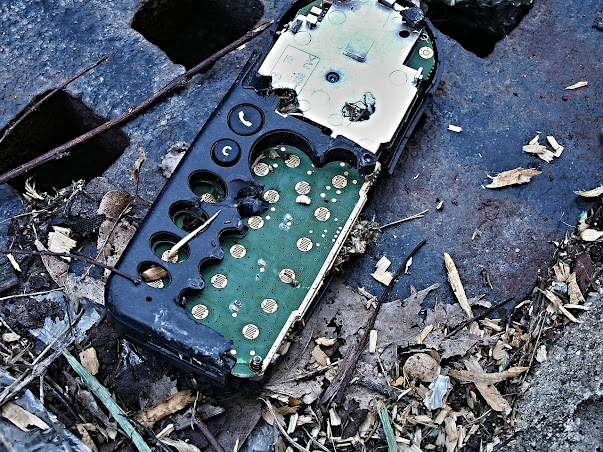Terror-tinted glasses
 |
| https://creativecommons.org/licenses/by/2.0/ https://www.flickr.com/photos/aucklandmuseum_collections/51371483677 |
There was a busy woman in a group of my students a few years ago who kept trying to solve problems for me. She wanted to shake up the organisation to bring more students to my class, provide better tea, find better links to illustrate my talks. Which was very kind of her but I didn't in fact see these as problems that needed to be solved. She was focussing so much on not being selfish, that she saw it where it wasn't and missed out on learning the very thing she was there to learn.
When I was a student I had a memorable training post in West London where I shared the Paediatrics on call with another student. She was a serious young woman with the leanness of a long-distance runner, who knew she wasn't good with children and wanted all the experience she could get. So when the pager went off in the night she literally ran the five hundred yards from the on call room to the hospital and inevitably got there before me. And when I challenged her about taking all the patient experience on my nights as well as hers, and showed her where my name was on the night's whiteboard, she took to rubbing it off and putting hers. Apparently her focus was so much on avoiding being awkward with children that she was missing the value of good relationships with her colleagues.
I remember a patient with an alternative lifestyle who was so determined not to be forced to take more medicine that he wouldn't let me finish a sentence. He was only taking the pills because he believed that if he stopped them we would lock him up. Believing this, he was understandably angry at his situation, and was determined not to let me get away with it. I tried to explain my plan to work together on safely reducing the dose. Even when he eventually understood what I was saying, he was suspicious as to my motives. What was it I was not telling him? He was so focussed on not being controlled that he saw it where it wasn't and missed seeing his own power over his mental health treatment.
Avoiding falling into the pit
I went to a family funeral yesterday, where I met some cousins who I am fond of from childhood but haven't seen for, well in some cases for decades. It was a pleasure to see them and their families. Everyone agreed that it was a release for my aunt. And it was very well organised, touching, and at times funny. But when I came home I found that the overwhelming feeling for me was feeling bad about myself. Worrying that I might have made the experience worse for some of the other mourners in some way I couldn't quite remember.
Now I'm not going to go into the repetitive details of what I was saying to myself, but after a while I realised that every comment my inner interrogator made was from the point of view of 'Am I a bad person? Did I do something wrong?' The subtext of the question being that being wrong or upsetting people is a pit that follows me around and I have to be always alert to where it is or I will fall in. In other words, that it's better not to say or do anything at all than to be a bad human being.
The downside is obvious when I put it like that. I've been holding back from living my life in order to avoid it being a bad one. Which is a very effortful but effective way to make my life a bad one.
Letting go of attachment to the rules
I've known this about myself and my life for a long time and I thought I had solved it. I'm thinking about my mother again here. Since she is in her nineties and has had a bit of her brain missing for the last thirty years, she has been known to ask the same question repeatedly. But of course I don't think of her questions as meaning anything about me. So for a decade I have done my best to receive this question, of whether I have done something unforgiveable, in the same way, as something that has nothing whatsoever to do with me. And I thought it was working for me, but apparently not as well as I thought.
Allowing myself to be the happy person
I woke up the morning after the funeral with a bright idea. Perhaps I could substitute the question 'Does that make me a bad person?' with 'What would make me happy?'. Instead of the subtext that I must have been in the wrong, could I give myself the subtext that I could and should be happy when I can?
Now, just to be clear, I'm not saying I was telling myself to turn into a consequence-denying hedonist. For me there is little risk of that. I'm not going to start mainlining drugs or torturing people for my own pleasure. For another person the question might have to be what will make them happy in the long term, or something like that. But for someone 'overcivilized' (aka obsessional) like me, it's allowing myself to enjoy my life right now that's at issue.
Substituting this question was like waving a magic wand over my day. I thanked my luck for allowing me more time in the warm fug of bed rather than forcing myself out into the chill. I gave A a snuggle just because I wanted to, instead of leaving it in case I woke him. He turned over and rewarded me by hugging me back as he slept. I did some frivilous photographing of my clothes and input them into a wardrobe app. (A wardrobe app is a way to see all your clothes together and get new ideas about how to wear them.) I even added some of the art coats I made that I've never dared wear outside the house. It made me happy to give myself the freedom to do this unimportant thing that makes me happy. I can enjoy my daughter's skill in cooking later. Letting go of the thought, like a snooze alarm in my head, that it was bad of me not to do it for her. Because that thought is not the road to happy. Perhaps I will play some music later. Perhaps I will turn the tidying up into a dance.
Seeking her own happiness in the moment might have let my busy student relax and enjoy the process of learning mindfulness. She might have learned that her happiness doesn't necessarily rely on doing things for ungrateful others.
And asking herself the question 'What would make me happy now?' could help the running student know that being a person with no skill in child-wrangling is just how she is. And being comfortable with her own strengths rather than avoiding her weaknesses might have, like me, opened her up to the particular value she could bring to other people and a more connected life.
It was only months after our first conversation that my patient stopped focussing on his fear of being abused by me, and was able to negotiate a dose that worked for him. He stopped rejecting my input, which allowed him to ask himself what he needed from me.
Terror-tinted spectacles
Talking about turning towards happy and away from self-monitoring can sound like advising rose-tinted spectacles. That is not what I mean. To me rose-tinted spectacles mean that you are in a bad situation but in denial about it. That you determinedly count your blessings while a juggernaut is rushing towards you. That is not what I mean.
To think you need rose-tinted specs you have to be seeing life as a struggle. As I did for so many years.
What I mean is that now I see that making life into a struggle is the problem, not the solution. It is as if for much of my life I have worn terror-tinted spectacles. The worst thing that could possibly happen is highlighted with flashing neon even when it's a minor problem of insignificant probability. Or even an impossible event. The neon stops me from seeing the green and pleasant life I am lucky enough to actually have. The creative and loving person I actually am. When I stop blinding myself to it for neurotic, or should I say delusional reasons, life is better than I thought.
And for me, letting go of my avoidance allows me to move towards the pleasure life has to give by default. Of course I am bad at some things, everyone is. Of course unpleasant things will happen, and some of them will be a consequence of something I did or didn't do. But being constantly on my own back and baffling my natural way of being is not the way to make my life better, or the lives of those around me. It is actually the obstacle to a good and happy life.
We only have one life and by my age it's easy to see that it's soon over. Taking pleasure in what we can in this moment is obvious from this perspective. Why on earth would we put ourselves into terror-tinted glasses instead?
.jpg)


Comments
Post a Comment
Tell me what you think about this idea, your experiences, or just what comes to mind when you read this.